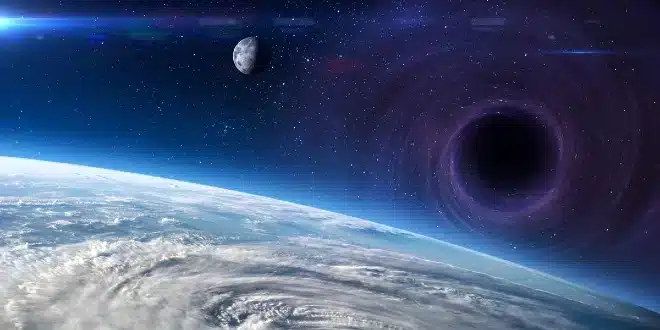Scientists have proposed that a small black hole may pass through our solar system approximately once every decade, and this could be detected by monitoring the wobbling of Mars. This idea is based on the hypothesis that dark matter, which makes up most of the universe, is largely composed of tiny black holes.
To investigate this theory, researchers have been observing Mars’ orbit closely. A new study, published in the journal *Physical Review D*, suggests that as these small black holes travel through the solar system, they could cause Mars to wobble in a way that can be measured from Earth.
David Kaiser, a physics professor at MIT and a co-author of the study, explained that scientists have been able to measure the distance between Earth and Mars with incredible accuracy—within about 10 centimeters. This precision allows them to detect small changes, such as the potential wobble caused by a passing black hole. “If we observe this effect,” Kaiser said, “it would provide solid evidence to continue exploring the idea that all dark matter consists of black holes formed less than a second after the Big Bang, which have been moving through the universe for 14 billion years.”
The researchers estimate that one of these small black holes could pass through the solar system roughly once every ten years. Co-author Sarah Geller, now a postdoc at the University of California, Santa Cruz, clarified that “Primordial black holes don’t reside in the solar system; they are moving through the universe independently,” with the likelihood of one passing through the inner solar system every decade or so.
To detect these black holes, scientists have modeled the orbits of large objects within the solar system and found that the subtle wobbles in Mars’ orbit could provide clues about the presence of black holes with masses similar to asteroids. Co-author Benjamin Lehmann, a researcher at MIT, explained that simulations of the solar system include millions of objects, each having a minor effect, and even when modeling a few dozen objects, the team noticed a measurable impact.
These wobbles will be detected by instruments on Earth, and the researchers plan to distinguish them from other influences, such as space rocks. Kaiser noted that astronomers have been tracking ordinary space debris for decades, which helps the team differentiate between the typical paths of asteroids and the unique trajectories of primordial black holes.
The researchers are hopeful that by continuing to monitor these tiny shifts in Mars’ orbit, they can confirm the existence of these elusive black holes and gain further insights into the nature of dark matter.


